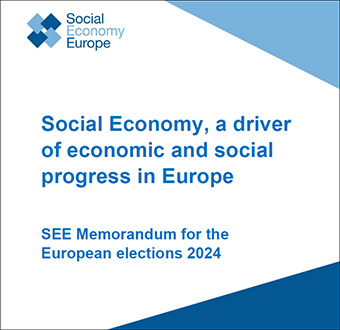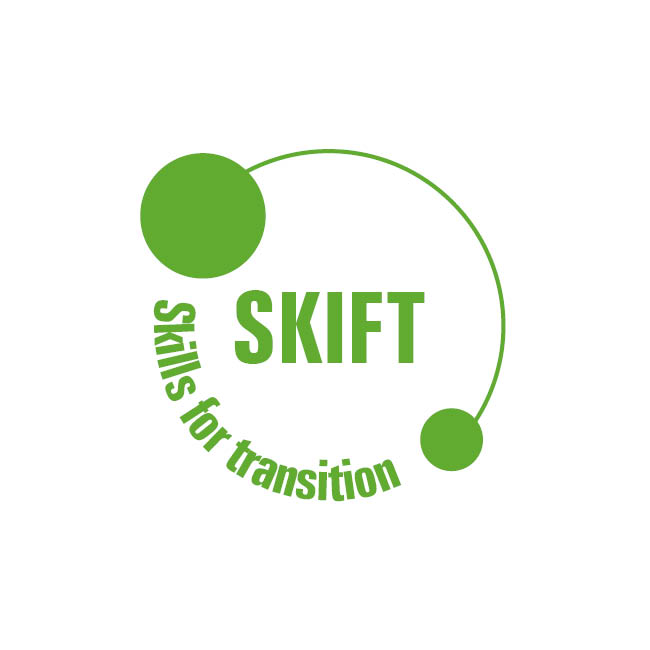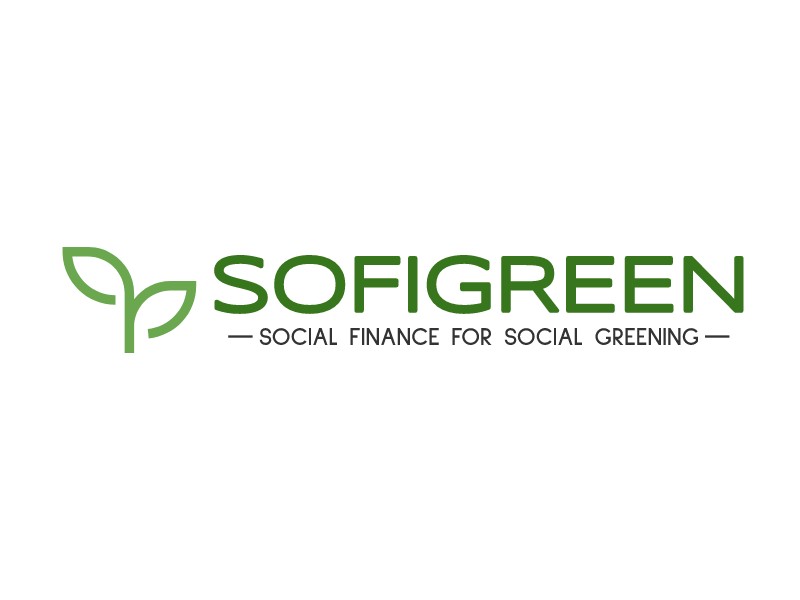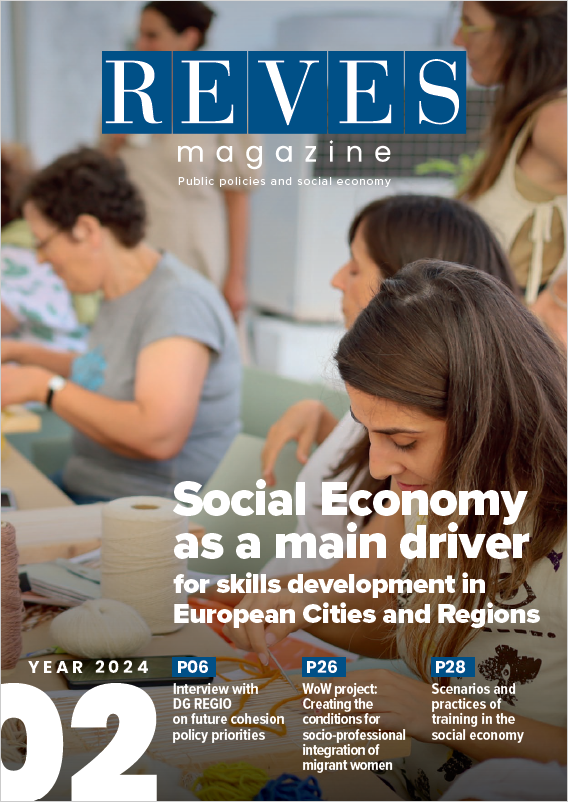Capacity-building for green transition – main theme of the third RESPONDET mission hosted by the Małopolska region

 The House of Utopia – RESPONDET partners could not have found a better place for a part of their third transnational mission workshop which focused on ways and means to strengthen the capacity of local communities and policy-makers as key players of (green) transition processes. The force and importance of creating a shared vision of local development coupled with concrete actions developed in partnership between citizens, (social economy) enterprises, artists, policy-makers and others became once again evident.
The House of Utopia – RESPONDET partners could not have found a better place for a part of their third transnational mission workshop which focused on ways and means to strengthen the capacity of local communities and policy-makers as key players of (green) transition processes. The force and importance of creating a shared vision of local development coupled with concrete actions developed in partnership between citizens, (social economy) enterprises, artists, policy-makers and others became once again evident.
The event, organized by the Regional Centre for Social Policy (ROPS) on 30 November and 1 December 2022 in the Polish city of Cracow provided partner regions and cities with the opportunity to learn more about regional policies for social economy development in Małopolska, the Regional Action Plan for Climate or the Regional Programme for Circular Economy. At the same time, participants had the occasion to meet and exchange with local citizen initiatives and social economy acting mainly in the field of the circular economy in project such as the Zero Waste Map or the Social Foodsharing Fridges… Finally, through a series of interactive world café sessions, partners defined more in detail needs, potential and possible future actions to be taken in order to improve skills and capacities of social economy-based citizen initiatives, on one hand, and policy-makers, on the other, when it comes to promoting green transition in the areas of community energy and circular economy.
Finally, through a series of interactive world café sessions, partners defined more in detail needs, potential and possible future actions to be taken in order to improve skills and capacities of social economy-based citizen initiatives, on one hand, and policy-makers, on the other, when it comes to promoting green transition in the areas of community energy and circular economy.
Capacity building – Małopolska on the way to the green transition:
Three questions to Rafał Barański, Deputy Director of the Regional Centre for Social Policy in Cracow
Is the Małopolska region ready to enter into the green transition process? As stated in the Regional Action Plan for Climate and Energy, adopted by the Board of the Małopolska Region in 2020, we need to strengthen strategic activities indispensable to adapt to climate changes and ensure energy safety. Violent weather events as well as the current geopolitical situation show the necessity to take concrete actions rapidly.
As stated in the Regional Action Plan for Climate and Energy, adopted by the Board of the Małopolska Region in 2020, we need to strengthen strategic activities indispensable to adapt to climate changes and ensure energy safety. Violent weather events as well as the current geopolitical situation show the necessity to take concrete actions rapidly.
We are aware of the fact that we will not make it unless, as discussed during our RESPONDET mission workshop in Cracow, potential and intersectoral partnerships are being build. This should be done at a local and regional level with the participation of communities, cultural and educational institutions, business and entrepreneurs, social economy entities and the citizens of course.
Talking about social economy, how do you perceive its role in the regional transition process?
Today, we often talk about clusters and energy cooperatives, such as the one in Ochotnica Dolna, that contribute to the development of energy sustainable areas. Ochotnica Dolna is a good example of the small community that wants to reach climate neutrality and energetic independence.
Circular economy is one of the areas in which social economy entities are actively involved. The 6XR rule (Rethink, Refuse, Reduce, Reuse, Recycle and Recover), no plastic, foodsharing or second-hand clothes are ideas becoming more and more popular in our society. Also, small non-profit organizations undertake many actions that are meant to educate and promote sustainable habits. They are predisposed to do that as they operate in local communities close to inhabitants, offering the latter basic services. During our December mission in Cracow, we had the chance to organize some study visits to the areas where good zero-waste initiatives are run. Social fridge is a concept where one can leave food that is still good for consumption. The zero-waste map, located on the streets of the Nowa Huta district, shows services that can be reached within a 10 minutes walking distance. Żywa Pracownia is a social enterprise running a tool library and offering recycling workshops.
Has the regional policy already recognized the place for social economy in the green transition process?
In the Regional Social Economy Development Programme we have highlighted the circular economy trend that is surely a field of action for regional social enterprises.
Thanks to the participation in the RESPONDET project we will have a chance to further stress the significant role of social economy and propose actions that are meant to improve the green transition process.
___________________________________________________________________________________________________________________
Capacity-building to promote community-driven green transition in the field of energy and circular economy – Practice examples from RESPONDET partner regions
Region of Catalunya: Application supporting citizens in the creation of energy community initiatives
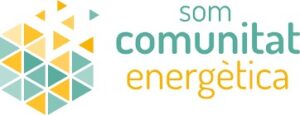 The application “Som comunitat energètica”, developed by the Catalan cooperative Ciclica in cooperation with the Catalan Energy Research Institute and other (social economy) players as well as with the support of the region of Catalunya, has the objective to support citizens in the creation or joining of community energy initiatives. “Som comunitat energètica” provides interested persons with a possibility to assess the potential of their own residential building and living environment with regard to the generation of photovoltaic energy, but also to find out about existing community energy initiatives in their surroundings. Moreover, citizens willing to establish a community energy initiative or to join an existing one can find, through the application, an overview of important contacts, advisory services and other potential support as well as providers (e.g. of photovoltaic panels) in their proximity.
The application “Som comunitat energètica”, developed by the Catalan cooperative Ciclica in cooperation with the Catalan Energy Research Institute and other (social economy) players as well as with the support of the region of Catalunya, has the objective to support citizens in the creation or joining of community energy initiatives. “Som comunitat energètica” provides interested persons with a possibility to assess the potential of their own residential building and living environment with regard to the generation of photovoltaic energy, but also to find out about existing community energy initiatives in their surroundings. Moreover, citizens willing to establish a community energy initiative or to join an existing one can find, through the application, an overview of important contacts, advisory services and other potential support as well as providers (e.g. of photovoltaic panels) in their proximity.
More information: https://somcomunitatenergetica.cat/
Piedmont Region: C.O.S.M.O project
 The C.O.S.M.O. project is promoted by CAST (Centro per un Appropriato Sviluppo Tecnologico), a NGO from Piedmont Region and a consortium of local municipalities in the Verbania area.
The C.O.S.M.O. project is promoted by CAST (Centro per un Appropriato Sviluppo Tecnologico), a NGO from Piedmont Region and a consortium of local municipalities in the Verbania area.
It intends to create a training/action path that increases the skills and competences of the local community – starting from the municipalities of Besozzo, Laveno Mombello, Luino and Travedona Monate as promoters on the territory of Agenda 21 Laghi and the Valli del Verbano Mountain Community – in the establishment of Renewable Energy Communities, the management of an Observatory on energy efficiency in public and private buildings and an energy consumption monitoring system.
The structure of the project envisages the participation of public officials, individual and associated private citizens and companies in training courses based on the principles of cooperative learning, so that at the end of the specialists’ intervention, the communities trained can in turn replicate and disseminate their knowledge and experience to other emerging communities.
Małopolska Region: ecoMałopolska
The objective of the ecoMałopolska project is to improve air quality in the region, through varied programmes, education and the promotion of eco-friendly practices. It includes actions to promote the use of green public procurement in public administration or the introduction of eco-advisors for citizens and business.
In 2019 the Board of the Małopolska Region established a Council for ecoMałopolska. Its opinions are crucial for the regional government when preparing programs and development strategies regarding air protection. The members of the Council are representatives of various institutions, entrepreneurs, universities, self-governments and non-governmental organizations.
Wallonia Region: Investing in green transition of the social economy
 The Walloon Government has provided the public investment agency W.Alter, set up specifically to support the social economy, with a budget to support Walloon cooperative projects in their green transition and in the development of short circuits. The proposed financial solution consists in an investment by W.Alter in the enterprise’ s patient capital (for a minimum period of 5 years and a maximum of 10 years investment).
The Walloon Government has provided the public investment agency W.Alter, set up specifically to support the social economy, with a budget to support Walloon cooperative projects in their green transition and in the development of short circuits. The proposed financial solution consists in an investment by W.Alter in the enterprise’ s patient capital (for a minimum period of 5 years and a maximum of 10 years investment).
More information: https://www.w-alter.be
Wallonia Region: Data platform regarding social economy initiatives in the circular economy
The Walloon Federation of social economy enterprises active in the circular economy Ressources developed a digital system which has the purpose to collect information on the different reuse-related activities of member organisations. Beside providing an important monitoring and reporting tool in the context also of labels such as Rec’UP and Solidar, the system represents an important instrument for the (joint) planning and management of reuse activities by the members of the association.
The Region of Wallonia envisages to further strengthen the potential of this type of platforms in the framework of its Circular Wallonia and Digital Wallonia Strategies.
_______________________________________________________________________________________________________________________________________________________
Governance and new forms of partnership – Central topic of the upcoming RESPONDET mission workshop in Turin
New governance models and new forms of partnership are key ingredients of local strategies for social and green transition which aim to stimulate and build on the potential of citizens and local communities to become active players in this transition. They will be at the centre of the fourth RESPONDET mission workshop bringing together policy-makers, local administration, social economy actors and civil society from Belgium, Italy, Poland and Spain on 24 and 25 January 2023 in the Italian city of Turin. The workshop will be co-organised by the city of Torino and the Turin Chamber of Commerce in cooperation with other members of the Torino Social Impact Alliance, Mercato Circolare and the Case del Quartiere Network.
They will be at the centre of the fourth RESPONDET mission workshop bringing together policy-makers, local administration, social economy actors and civil society from Belgium, Italy, Poland and Spain on 24 and 25 January 2023 in the Italian city of Turin. The workshop will be co-organised by the city of Torino and the Turin Chamber of Commerce in cooperation with other members of the Torino Social Impact Alliance, Mercato Circolare and the Case del Quartiere Network.
The agenda includes presentations of local policies and practices related to green transition (with a particular focus on community energy initiatives and circular economy), study visits, interactive peer-learning moments and networking sessions.
As the three preceding RESPONDET workshops in other partner regions, the event will serve as a source of inspiration for the development of local/regional action plans which will promote in particular the role of social economy-based community initiatives in green transition.
________________________________________________________________________________________________________________________________________________________
Other News
European Commission: Info session on the implementation of the Transition Pathway
 The European Commission has published the final transition pathway on proximity and social economy on 14 November 2022, which was also the start of the implementation phase.
The European Commission has published the final transition pathway on proximity and social economy on 14 November 2022, which was also the start of the implementation phase.
An online info session will be organized on 26 January 2023 from 10 to 11.30 am, which aims to explore the opportunities of this implementation phase, and more precisely:
– look closer at the 14 action areas and 30 actions of the transition pathway,
– inform about the call for pledges: why and how to make a pledge?
– inform about next steps and future opportunities.
Subscription can be done here.
European Investment Bank Institute/Social Innovation Tournament: Special category prize on sustainable cities and sustainable communities!
The @EIBInstitute offers up to €100 000 for social entrepreneurs who want to solve social or environmental challenges in Europe. Applications for the Social Innovation Tournament can cover any of the 17 #SDGs and this year’s Special Category Prizes will focus on #sustainablecities and #sustainablecommunities.
Two Q&A webinars to help #SIT applicants prepare their application will be held:
#SIT applicants prepare their application will be held:
Wednesday, 25 January 2023 17:00 (CET): https://bit.ly/SITW25JAN
Thursday, 9 February 2023 10:00 (CET): https://bit.ly/SITW9FEB
Applications will be accepted from 16 January to 23 February 2023.
For more information: http://bit.ly/SIT23Stockholm
Germany: New programme to support the creation of citizen energy initiatives in the wind energy sector launched
Good news for citizen energy initiatives in Germany: A new programme launched in January 2023 by the German Ministry for Economy and Climate Protection is providing support related to start-up costs of citizens’ energy companies for wind on land. This way, policy-makers intend to support citizen energy initiatives in the field of wind energy in overcoming the hurdle of high planning and licensing costs in the beginning of a project. The financial support provided amounts to EUR 200 000 maximum per initiative which is to be paid back once the project has been launched successfully.
A boom of newly created citizen energy companies in the past in Germany had come to a standstill several years ago due to worsening framework conditions.
With the programme, the German government hopes to relaunch past dynamics and help citizens to create successful initiatives in the field of citizen energy.
Follow us here: https://www.revesnetwork.eu/project/respondet/
Twitter: #RESPONDET
![]()
Views and opinions expressed in this newsletter are those of the author(s) only and do not necessarily reflect those of the European Union or EISMEA. Neither the European Union nor EISMEA can be held responsible for them.
Read More
European Elections: Help us mobilising (future) MEPs to keep social economy on the EU policy agenda
The European elections are approaching. Their outcome will decide on the direction the EU will…
REVES Annual Meeting 2024: Focus on inter-cooperation between different (social economy) actors and municipalities
REVES Annual Meeting 2024: Focus on inter-cooperation between different (social economy) actors and municipalities REVES…
OPEN CALL: POSSIBILITY FOR MICRO&SMALL SE ENTERPRISES TO RECEIVE FREE ADVISE AND COACHING ON GREEN TRANSITION-RELATED TOPICS
The SKI.F.T call for proposals is now open! Micro and small social economy enterprises…
GREENING OPPORTUNITY FOR SEEs
the SOFIGREEN call for proposal for SEEs operating in France, Italy and Spain is now…
 Docs
Docs  Support
Support 

